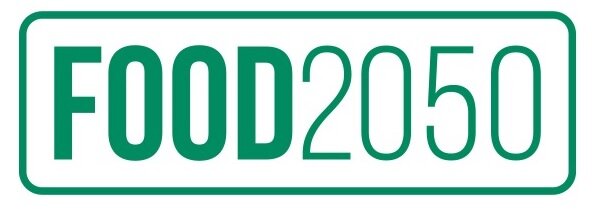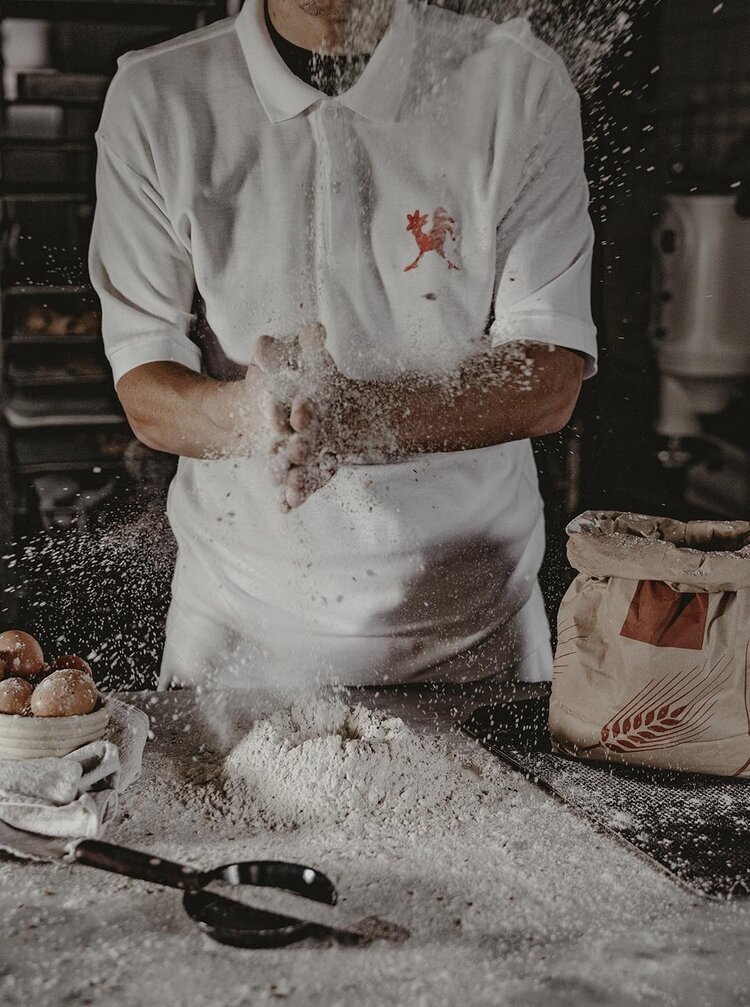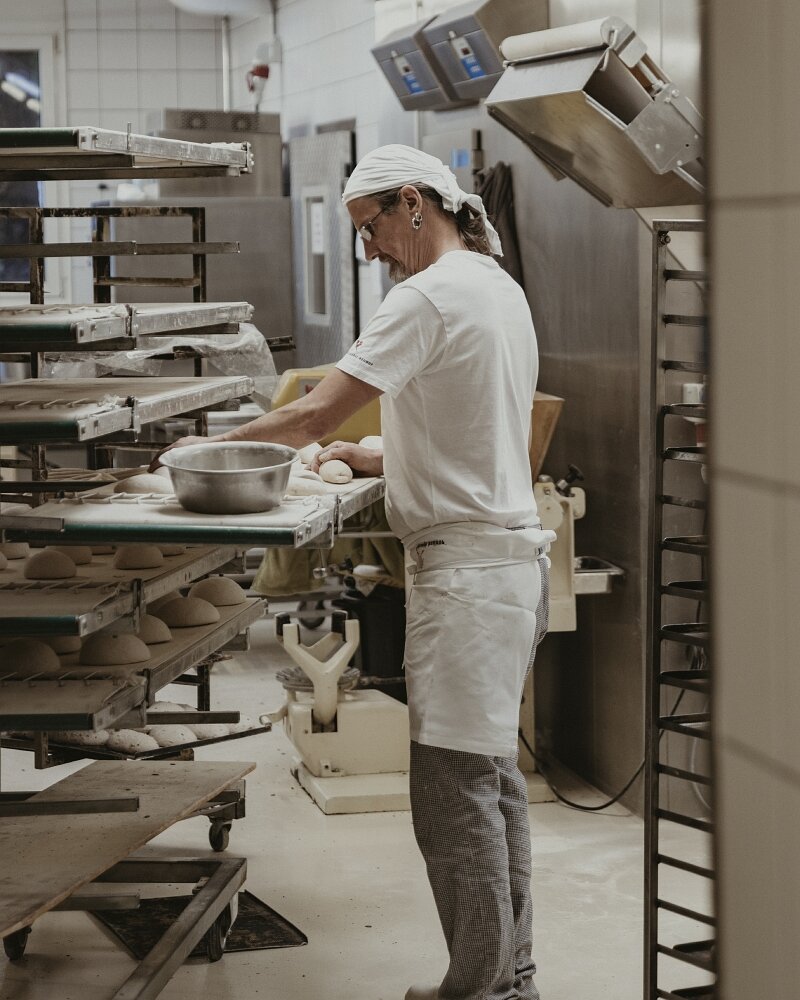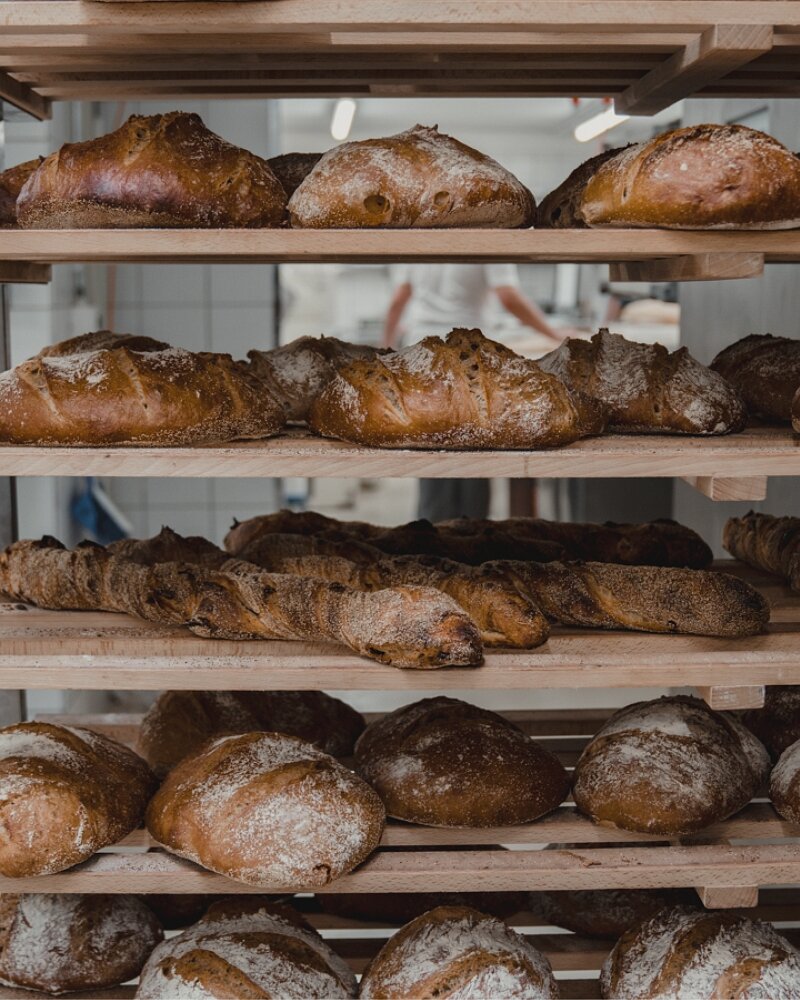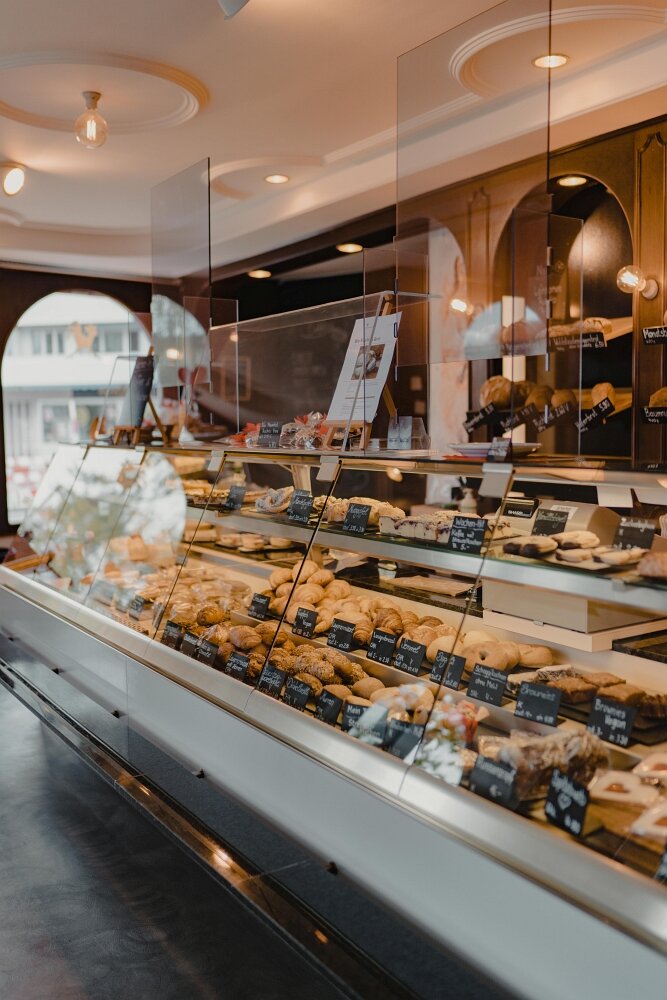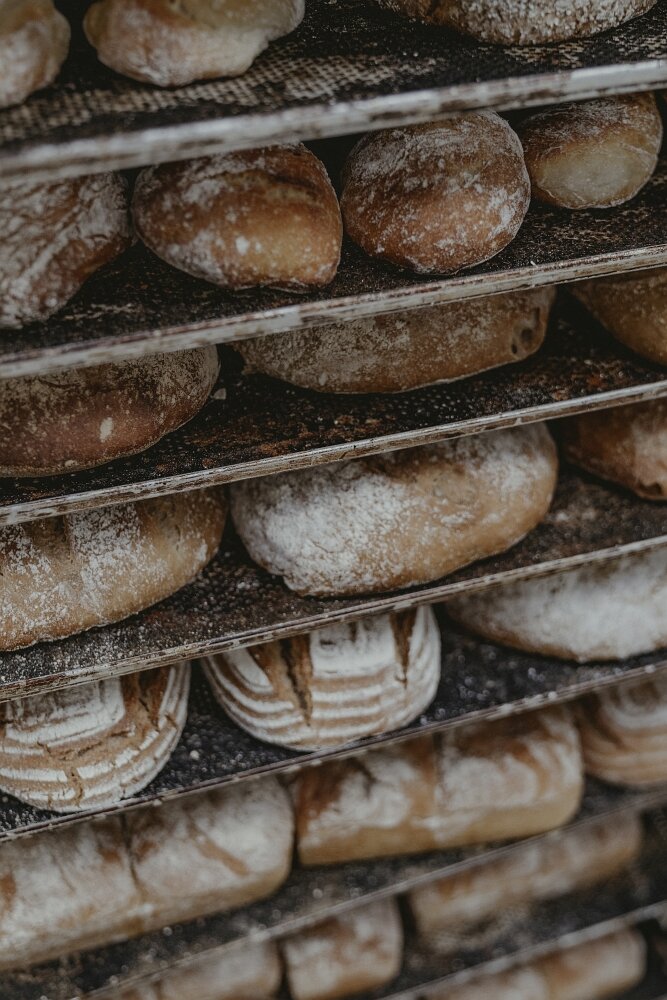"Sustainability is not a buzzword for us, but a culture we live."
Priska Furrer, Geschäftsführerin Bäckerei Neuhof (Foto Copyright: Bäckerei Neuhof)
For Neuhof Bakery, sustainability is not a buzzword, but a firmly anchored guiding principle in the bakery and in the business. In an interview, the managing director and socio-educational supervisor of the apprentices, Priska Furrer, 51, reveals what is particularly challenging about food transparency and what working with organic or vegan products means for the production of baked goods.
How do you explain what you are doing at Neuhof Bakery for a sustainable future?
Neuhof has been run as a purely organic business since it was founded in the 1980s. We work with high-quality products that have been produced regionally or in Switzerland whenever possible. Unsold bread is sold the next day at half price, made into breadcrumbs or given to humanitarian projects. In connection with this, we try to pass on our ideology to the next generation and are involved in the socio-pedagogical accompaniment of young people with individual support needs in vocational training.
How does the concept of Food2050 play into your mission?
Sustainability is not a buzzword for us, but a lived culture. It is important for us to be in exchange with the respective producers, suppliers and customers. In this way, points of view and needs can be explained, discussed and recorded. Only together, with mindfulness and respect for others and nature, can profound changes be made. FOOD2050 contributes to this networking of all stakeholders.
How have the demand and requirements of your customers changed in today's sustainability boom and ever-growing plant-based lifestyle?
At the counter, demand for vegan products has increased and it's important to customers to know the ingredients of the products. For the bakery, this means the following: The manufacturing process with organic or vegan alternative products takes more time than with conventional ingredients and additives. But time plays a central role in our house philosophy.
What is the biggest challenge for the craft bakery in terms of food transparency?
The administrative effort requires more and more time. For example, if the bakers change something in the recipe, this has to be reported to the organic inspectorate and consequently all product sheets at suppliers, in the store or on the website have to be adapted.
What is still ahead of us, and how will we manage to look back proudly in 2050?
There is still a lot ahead of us, because the situation is complex and changes take time. It is important that we act now and not just talk about it and expect the "others" to change something first. As a consumer, I can influence and control my purchasing behavior and I am also prepared to pay a fair price for the desired quality. If the demand is big enough, the whole food industry is challenged. Whether this is the right way to go remains to be seen.
